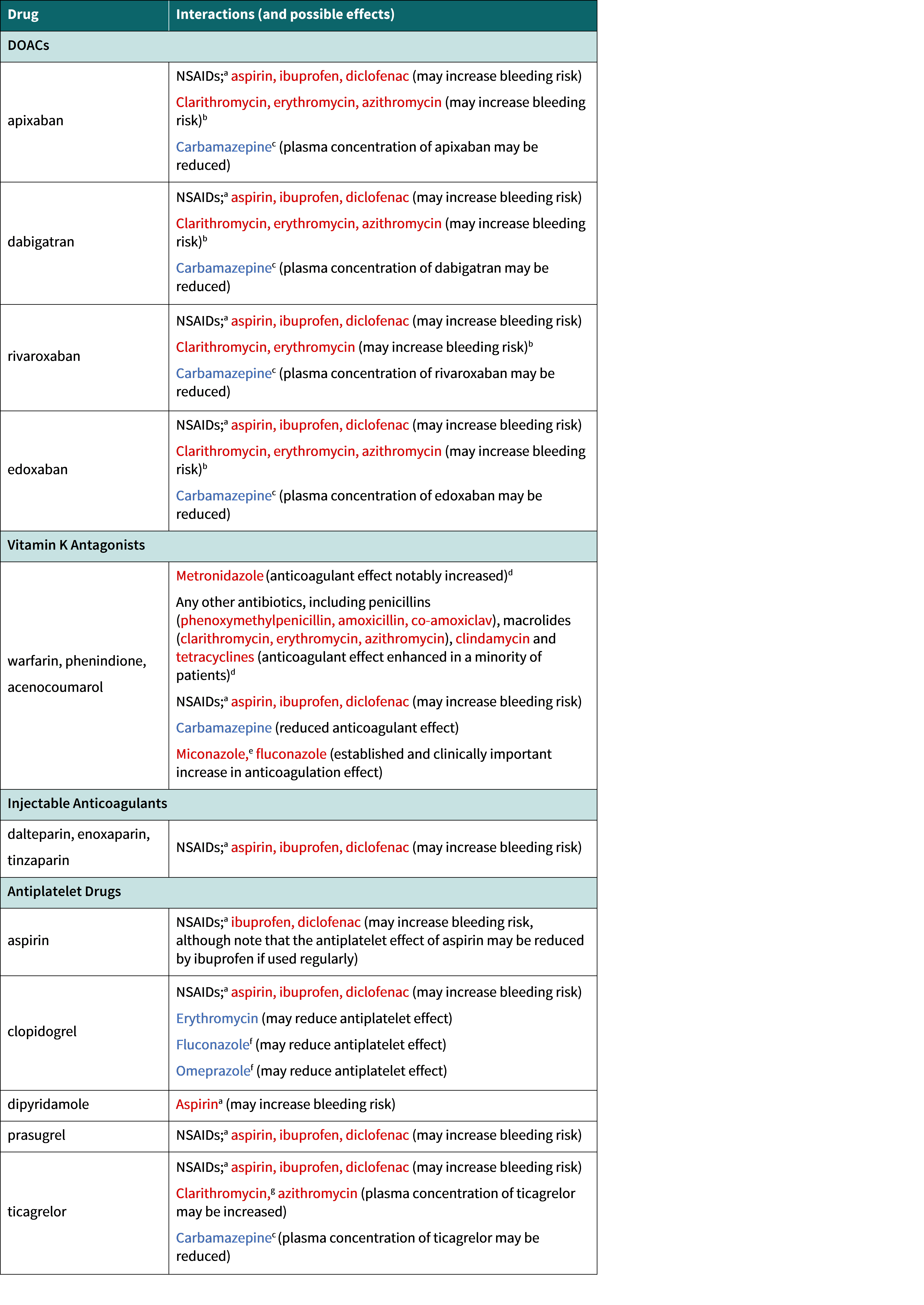Interactions with drugs prescribed by dentists
The tables below show possible interactions and effects between anticoagulants or antiplatelet medications and drugs which can be prescribed by dentists. This has been compiled from information contained in the BNF, the individual drug Summary of Product Characteristics (SPCs) and with expert advice.
Drugs which are likely to increase the anticoagulant or antiplatelet effect of the existing medication, and therefore have the potential to increase bleeding risk, are indicated in red.
Those which may decrease the anticoagulant or antiplatelet effect of the existing medication, and therefore have the potential to increase the patient’s thromboembolic risk, are indicated in blue.
The information provided summarises the main interactions and is not exhaustive. The information is subject to change, especially for the newer drugs.
For further information and advice about the interactions refer to the BNF, the individual drug SPCs at www.medicines.org.uk and SDCEP Drug Prescribing For Dentistry guidance.

a The use of NSAIDs is discouraged in patients with vascular disease, because of their antiplatelet action. Simple analgesics (paracetamol, co-codamol) should be tried first. If an NSAID is required, treatment length should be kept to a minimum and gastroprotection considered.
b There is a risk of interaction between any DOAC and macrolide (clarithromycin, erythromycin, azithromycin) although these are likely to be of varying clinical significance. If prescribing erythromycin for a patient taking edoxaban, liaison with the patient’s prescriber is required for edoxaban dose reduction.
c Carbamazepine should be avoided in patients taking ticagrelor, apixaban, dabigatran or rivaroxaban and should be used with caution in patients taking edoxaban or avoided if possible.
d Fever or infection can affect coagulation or drug metabolism, therefore any patient systemically unwell enough to require an antibiotic may have an altered coagulation status. The expectation of an interaction with a vitamin K antagonist should not exclude the use of an antibiotic if it is considered clinically appropriate. If antibiotics are prescribed, the patient should be advised that their INR might be increased and the patient’s general practitioner or anticoagulation service informed so increased INR monitoring can be considered.
e Miconazole use should be avoided in patients taking warfarin or acenocoumarol.
f Fluconazole or omeprazole use should be avoided in patients taking clopidogrel.
g Clarithromycin use should be avoided in patients taking ticagrelor.